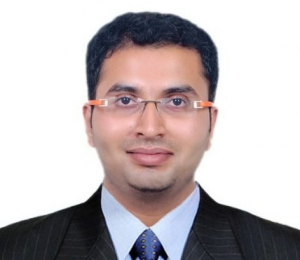
Professor Álvaro Rocha
Title: A health data analytics maturity model for hospitals information systems
Biography:
Álvaro Rocha is World’s Top 1% cited Scientist according to Stanford University (USA) and Elsevier and World’s Top 1% cited Scientist according to ResearchGate in the domains of information science and information systems. He is Professor at ISEG, University of Lisbon, Visiting Professor at the University of Calabria, Honorary Professor at Amity University, President of ITMA – Information and Technology Management Association, Vice-Chair of IEEE SMC Portugal Chapter, and Book Series Scientific Manager at Springer-Nature. He holds the title of Honorary Professor, D.Sc. in Information Science, Ph.D. in Information Systems and Technologies, M.Sc. in Information Management, and BCs in Computer Science. He is researcher at the ADVANCE program (the ISEG Centre for Advanced Research in Management), and a collaborator researcher at both LIACC (Laboratory of Artificial Intelligence and Computer Science) and CINTESIS (Center for Research in Health Technologies and Information Systems). His main research interests are maturity models, information systems quality, online service quality, requirements engineering, intelligent information systems, e-Government, e-Health, and information technology in education. He is also Founder and Editor-in-Chief of both following Scopus and/or WoS journals: JISEM (Journal of Information Systems Engineering & Management) and RISTI (Revista Ibérica de Sistemas e Tecnologias de Informação / Iberian Journal of Information Systems and Technologies). Moreover, he has served as a Vice-Chair of Experts for the European Commission’s Horizon 2020 Program, and as an Expert at the COST – intergovernmental framework for European Cooperation in Science and Technology at the European Commission’s Horizon Europe Program. In addition, he has advised Ministry of Universities and Research in Italy, Ministry of Finance in Latvia, National Council of Science and Technology in Mexico, National Science Centre in Poland, and the Research and Innovation Foundations in Cyprus.
Abstract:
In the last five decades, maturity models have been introduced as reference frameworks for Information System (IS) management in organizations within different industries. In the healthcare domain, maturity models have also been used to address a wide variety of challenges and the high demand for Hospital IS (HIS) implementations. The increasing volume of data exceeds the ability of health organizations to process it for improving clinical and financial efficiencies and quality of care. It is believed that careful and attentive use of Data Analytics in healthcare can transform data into knowledge that can improve patient outcomes and operational efficiency. A maturity model in this conjuncture, is a way of identifying strengths and weaknesses of the HIS maturity and thus, find a way for improvement and evolution. This speech presents a proposal to measure Hospitals Information Systems maturity regarding Data Analytics. The outcome is a maturity model, which includes six stages of HIS growth and maturity progression.

Professor Nithesh Naik
Title: Application of Artificial Intelligence-Based Classifiers to Predict the Outcome Measures and Stone-Free Status Following Percutaneous Nephrolithotomy for Staghorn Calculi: Cross-Validation of Data and Estimation of Accuracy
Abstract:
To develop a decision support system (DSS) for the prediction of the postoperative outcome of a kidney stone treatment procedure, particularly percutaneous nephrolithotomy (PCNL) to serve as a promising tool to provide counseling before an operation. The overall procedure includes data collection and prediction model development. Pre-/postoperative variables of 100 patients with staghorn calculus, who underwent PCNL, were collected. For feature vector, variables and categories including patient history variables, kidney stone parameters, and laboratory data were considered. The prediction model was developed using machine learning techniques, which include dimensionality reduction and supervised classification. Multiple classifier scheme was used for prediction. The derived DSS was evaluated by running the leave-one-patient-out cross-validation approach on the data set.

Dr Princy Randhawa
Title: Artificial Intelligence in Wearables
Biography:
Dr Princy Randhawa is an Assistant Professor (Senior Scale) in the Department of Mechatronics Engineering. She has been associated with the Manipal University Jaipur since July, 2015. She is also an Assistant Director in Directorate of Alumni Relations. She has over 10 years of teaching and industrial experience. Her fields of interest lie in research topics like Control Systems, Machine learning. She has published more than 30 research papers at various international conferences and journals in the finest area of her research. She has published 9 papers in SCI journals out of which 3 are Q1 journals. She has a good publication record with 4 patents, and 1 copyright on her research. She is a professional member of the International Society of Automation (ISA) and senior member of IEEE. Recently she also presented the paper at Worcester college University of Oxford and for that she received the travel grant from the science and engineering research board (SERB). She is also an active member of various NGOs and conducted various cancer awareness and woman sanitation hygiene programs in rural colleges. She has also delivered many invited talks on different platforms. Manipal University Jaipur’s illustrious leadership bestowed upon her the “MUJ All-Rounder Award 2022 ” in recognition of her dedicated teaching , administration and research and Young Researcher and Professional Excellence Award in 2023.
Abstract:
Artificial Intelligence (AI) has revolutionized the field of wearables, empowering these devices to offer personalised and intelligent experiences. AI in wearables enables real-time data analysis and decision-making, enhancing user convenience and functionality. One of the most promising applications of AI in wearables is for activity recognition. AI can be used to identify different types of physical activities as well such as walking, running, swimming, and biking. This information can be used to track fitness goals, provide personalized training recommendations, and detect early signs of health problems. Beyond health and fitness, AI-driven wearables can also augment daily life, such as voice-activated smart glasses that offer contextual information based on what the wearer is looking at. AI-driven wearables are poised to continue transforming the way we interact with technology, making them more responsive, informative, and indispensable in various aspects of our lives. The talk will be focused on the one case study how AI can be used in wearables to differentiate between the normal motion and violent attack for the applications of woman safety.

